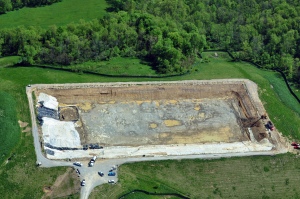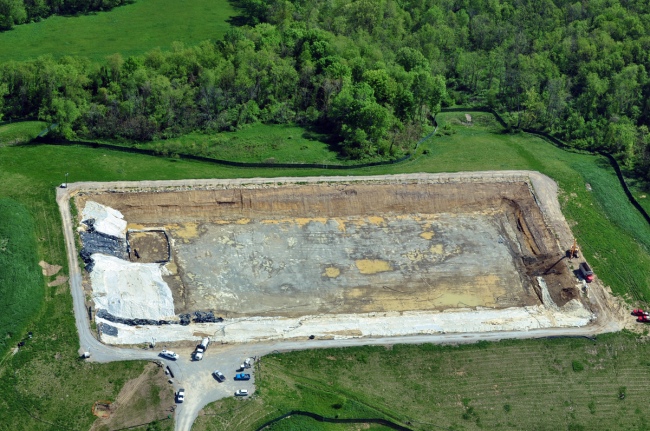Ever since the state Department of Environmental Protection confirmed a “significant leak” at a Range Resources centralized open impoundment in Washington County that required the excavation and removal of thousands of tons of soil, both the company and the department were adamant: The only contaminant was chloride – just salt.
Poister told the Observer-Reporter earlier this month, “Inspections revealed chloride in the soil and groundwater, which was a result of Southpointe-based Range Resources storing brine water in the impoundment, but no other materials or chemicals.”
But the reason might surprise you: Chlorides have only been detected because chlorides are the only thing Range Resources had its contractor test for, a DEP spokesman confirmed Monday.
“This is my bad,” Poister said Monday.
He explained that he had misheard the inspector, who had indicated that only conductivity testing had been completed at the site – what he described as being the “quickest” way to determine the extent of contamination – and that DEP would require that additional testing be completed.
But Poister was clear: Those wider array of tests are to be completed only after all the soil has been cleared from the site.
“That’s the protocol, we’ve got to get the soil out of there,” he explained. “We don’t jump the steps. The chief thing is to get that soil out.”
It was not clear how Range Resources would test soil after it had been hauled from the site.
Asked if DEP would conduct its own tests on soil at the Jon Day impoundment, Poister indicated that was not the role of the regulatory agency.
“The permit states (Range Resources) is required to do the testing. I don’t know beyond that,” he explained, adding that was the way state regulations are written.
Poister said crews are using conductivity tests to determine when to stop digging at the Jon Day impoundment at Amwell Township, where 10,000 tons of contaminated soil have already been excavated and hauled away from the former frack pit. At least 5,000 more tons will likely need to be removed, he said.
No deadline has been set for Range to complete the soil removal and conduct additional testing.
“This is not something that you do overnight,” he said about the cleanup effort.
Range Resources spokesman Matt Pitzarella did not immediately return an email seeking further information.






